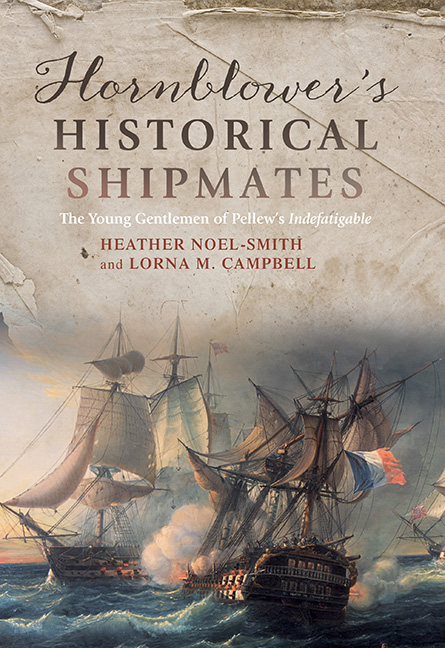Book contents
- Frontmatter
- Dedication
- Contents
- List of Illustrations
- Preface and Acknowledgements
- List of Abbreviations
- Introduction
- 1 Edward Pellew – Partisan and Patriarch
- 2 ‘My Dear Indefatigable’
- 3 The Fortunate Few
- 4 ‘Never Was Such an Action Known’
- 5 The Nature of Patronage
- 6 ‘Boys Grown to Manhood’
- 7 Diversity and Responsibility
- 8 Friends, Family and the Falmouth Connection
- 9 ‘Faithful and Attached Companions’
- 10 ‘No State in Life More Honourable’
- Appendix The Spencer–Pellew Correspondence of February 1799
- Bibliography
- Index
7 - Diversity and Responsibility
Published online by Cambridge University Press: 28 April 2017
- Frontmatter
- Dedication
- Contents
- List of Illustrations
- Preface and Acknowledgements
- List of Abbreviations
- Introduction
- 1 Edward Pellew – Partisan and Patriarch
- 2 ‘My Dear Indefatigable’
- 3 The Fortunate Few
- 4 ‘Never Was Such an Action Known’
- 5 The Nature of Patronage
- 6 ‘Boys Grown to Manhood’
- 7 Diversity and Responsibility
- 8 Friends, Family and the Falmouth Connection
- 9 ‘Faithful and Attached Companions’
- 10 ‘No State in Life More Honourable’
- Appendix The Spencer–Pellew Correspondence of February 1799
- Bibliography
- Index
Summary
During his own lifetime Pellew was regarded not only as one of the outstanding frigate captains of the era but also as a consummate and versatile sea officer. These were qualities that he looked for in his own officers and men, and they were often to be found in young men who came to the Royal Navy from the merchant service. The navy attracted skilled merchant recruits as it offered them the possibility of honour, gentility, wealth and a chance of bettering themselves. The advantage was not all one way; the navy also benefited significantly from the recruitment of officer candidates from the merchant service. In the case of the Indefatigable, merchant recruits leavened the frigate's cohort of midshipmen with adaptable and experienced sea officers who had valuable practical and navigational experience. Such recruits were ideally suited to service with detached frigate squadrons where their flexibility, resourcefulness, and knowledge of coastal waters and harbours could be exploited to the full during shore operations, cutting out expeditions and taking and crewing prizes. Regardless of their background, Pellew nurtured many merchant recruits throughout his lifetime and supported their careers as they progressed through the commissioned and warrant ranks of the service. Of those that served aboard the Indefatigable, several were to become his lifelong friends, and one a member of his extended family.
Alexander McVicar is unusual among the Indefatigable's merchant recruits as he transferred between the Royal Navy and the merchant service several times throughout his career. By the time he joined the Indefatigable, McVicar was already an experienced and versatile seaman whose skills were recognised and valued by Pellew. During the Peace of Amiens, McVicar returned to the merchant service before rejoining the navy when hostilities resumed. He went on to serve at Trafalgar, in the North Sea and the Baltic. After retiring from active service McVicar continued to engage in maritime commerce and served as Admiralty Commissioner for the Harbour and Docks of Leith.
Another versatile merchant recruit was John McKerlie; in addition to holding the rank of midshipman, at various periods McKerlie served as the Indefatigable's quarter gunner, boatswain and schoolmaster. Despite losing his arm during the Droits de L'Homme engagement, McKerlie had a distinguished naval career, serving at Trafalgar, off Heligoland, and on the Scheldt.
- Type
- Chapter
- Information
- Hornblower's Historical ShipmatesThe Young Gentlemen of Pellew's <I>Indefatigable</I>, pp. 133 - 157Publisher: Boydell & BrewerPrint publication year: 2016

